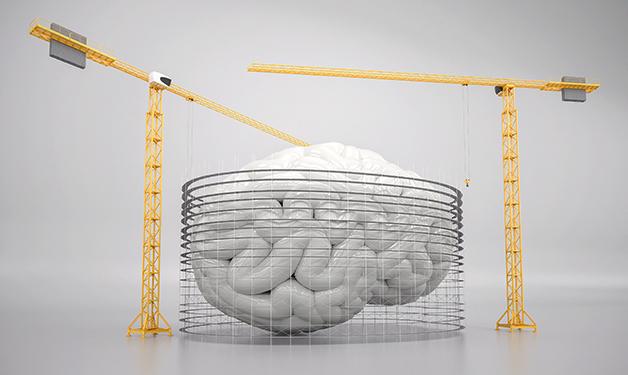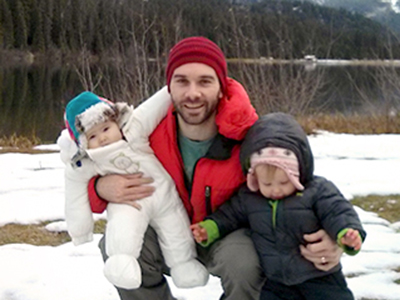
VCHRI scientist Cameron Mang explains why the brain is almost like putty in our hands and how we can change it.
Q: What is “neuroplasticity”?
A: Neuroplasticity is a broad term that refers to the remarkable capacity of the human brain to adapt to an ever-changing environment. Just as the environment is in a state of perpetual change, so is your brain. It is the brain’s ability to constantly adapt that allows us to continually function in a world full of obstacles and challenges.
Imagine that the brain is a big ball of putty, and all the experiences in your life are the hands around it. The experiences that shape the brain may involve external changes in the environment (e.g. exposure to new information), or internal changes (e.g. damage to the brain). In either case, the brain is incredibly efficient at adapting to these new conditions to optimize our real-world function.
Q: How is the concept of neuroplasticity different from what we used to think about the brain’s ability to change?
A: About 30 years ago the brain was still widely considered to be a “hard-wired” entity incapable of change. With incredible foresight, early neuroscientists observed the great capacity of humans to change their behaviours, and theorized that changes in the brain might be responsible. What was lacking at that time was the ability to empirically test and confirm that hypothesis.
Now, our understanding of the capacity of the brain to change is evolving at a faster pace than ever before. Major developments in the last 30 years, such as those made in magnetic resonance imaging (MRI) and non-invasive brain stimulation, have advanced the capability of scientists to measure and manipulate signals from the living human brain.
Q: How can a person who has lost motor skills due to a stroke, for example, get the brain to re-learn such skills?
A: Practice, practice, practice! While the brain has a great capacity to undergo change to support the re-learning of movements after brain damage, meaningful functional changes do not come easy. The great Canadian neuropsychologist Donald Hebb said, “Nerve cells that fire together, wire together”. Repeatedly practicing a movement task then promotes the firing, re-wiring, and strengthening of neural connections that support re-learning of movements during stroke rehabilitation. Critically, when these neurons fire together over and over again, they can create meaningful connections that support the learning of a functional movement. For example, people trained to learn the piano show expansions in the areas of the brain that control finger movements. In a very similar way, areas of the brain involved in movement also expand and support re-learning of movement tasks as people undergo rehabilitation training after stroke.
While research is investigating just how much practice is necessary for brain changes, it is becoming increasingly evident that the volume of practice for people with neurological impairments needs to be greatly increased to maximize brain plasticity and people’s individual functional outcomes. Different people recover differently and respond differently to rehabilitation strategies. A major challenge that scientists and clinicians face now is trying to unpack what accounts for this variability between people.
Q: What is the connection between aerobic exercise, neuroplasticity, and motor rehabilitation?
A: Recent work has begun to reveal that aerobic exercise has strong positive effects on the health and function of the brain. These brain benefits occur by indirect aerobic exercise effects, like improvements in blood flow and decreases in inflammation, but also by more direct effects, like changes in the production of numerous chemicals involved in nervous system function.
Even more interesting is fairly new evidence that there may be a window of time immediately after engaging in a bout of aerobic exercise in which an individual’s capacity to undergo brain plasticity is heightened. A single bout of aerobic exercise does not necessarily induce neuroplasticity on its own, but it does seem to prepare or prime the brain to undergo plasticity based on subsequent experiences.
Q: Can teaching an old brain new tricks be beneficial for older adults who face their own challenges in terms of declining physical and mental health?
A: The human brain has a great capacity for change that persists across the lifespan. Staying active and engaging in aerobic exercise can help maintain a healthy brain with a high capacity for positive neuroplasticity and cognitive functioning. An individual’s environment and experiences then shape the form that plasticity takes.
Neuroscientists commonly use the phrase “use it or lose it” when speaking of neuroplasticity. Their message is that to maintain skills and cognitive function, it is critical to continually expose oneself to experiences that engage the parts of the brain that underpin those behaviours. Staying active, both physically and cognitively, is undoubtedly a key element of maintaining a healthy lifestyle for everyone.



